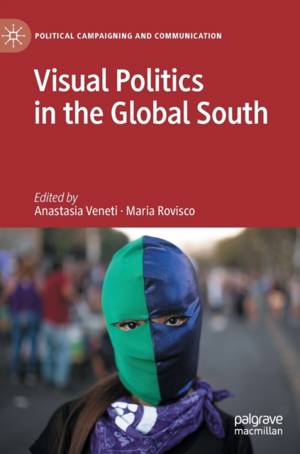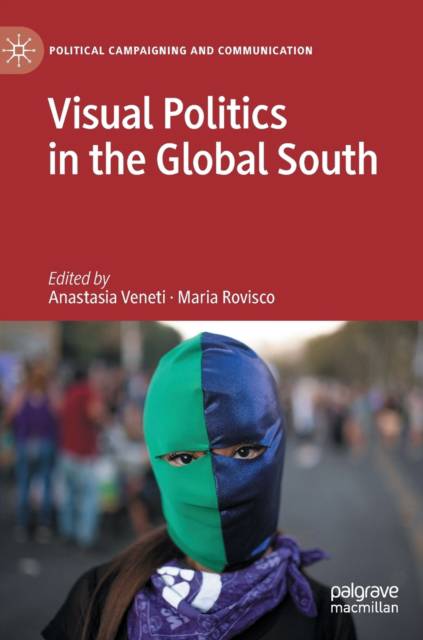
Bedankt voor het vertrouwen het afgelopen jaar! Om jou te bedanken bieden we GRATIS verzending (in België) aan op alles gedurende de hele maand januari.
- Afhalen na 1 uur in een winkel met voorraad
- In januari gratis thuislevering in België
- Ruim aanbod met 7 miljoen producten
Bedankt voor het vertrouwen het afgelopen jaar! Om jou te bedanken bieden we GRATIS verzending (in België) aan op alles gedurende de hele maand januari.
- Afhalen na 1 uur in een winkel met voorraad
- In januari gratis thuislevering in België
- Ruim aanbod met 7 miljoen producten
Zoeken
Visual Politics in the Global South
€ 160,45
+ 320 punten
Omschrijving
The role of the visual in politics is gaining momentum in scholarly work concerned with the current social media landscape. It is widely acknowledged that the production, dissemination and consumption of visual products in the Global South is powerfully shaped by geo-politics and a power dynamics in which the Global North dominates the South (the cultural imperialism argument). However, scant attention has been paid to theoretical, methodological, and empirically grounded approaches to visual politics produced by scholars working in the Global South. Little is known about the ways in which scholarship in the Global South might challenge and resist western approaches to the study of the visual. Against this background, this project aims to examine visual politics in the Global South through theoretically driven, and empirically grounded case studies, which focus on the role of the visual in formal politics (e.g., political campaigns, the relation between state and citizens) and public and everyday politics (e.g., social movements, activism, grassroots politics, civil society initiatives). This volume examines visual politics in the Global South through theoretically driven, and empirically grounded case studies, which focus on the role of the visual in formal politics (e.g., political campaigns, the relation between state and citizens) and public and everyday politics. It will be of interest to both researchers and students interested in the study of visual politics from various disciplinary lens (media and communication, anthropology, politics, and sociology).
Specificaties
Betrokkenen
- Uitgeverij:
Inhoud
- Aantal bladzijden:
- 331
- Taal:
- Engels
- Reeks:
Eigenschappen
- Productcode (EAN):
- 9783031227813
- Verschijningsdatum:
- 4/04/2023
- Uitvoering:
- Hardcover
- Formaat:
- Genaaid
- Afmetingen:
- 148 mm x 210 mm
- Gewicht:
- 576 g

Alleen bij Standaard Boekhandel
+ 320 punten op je klantenkaart van Standaard Boekhandel
Beoordelingen
We publiceren alleen reviews die voldoen aan de voorwaarden voor reviews. Bekijk onze voorwaarden voor reviews.








